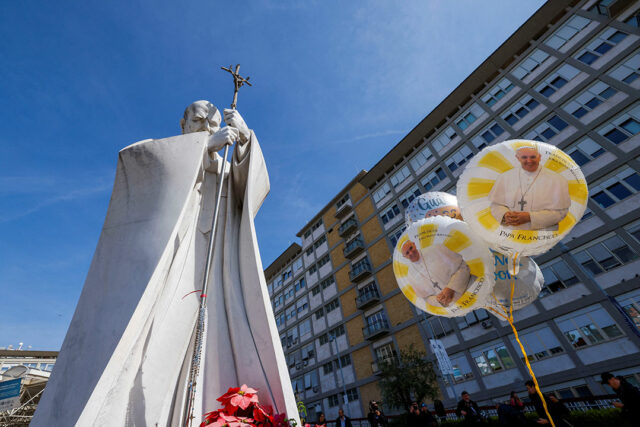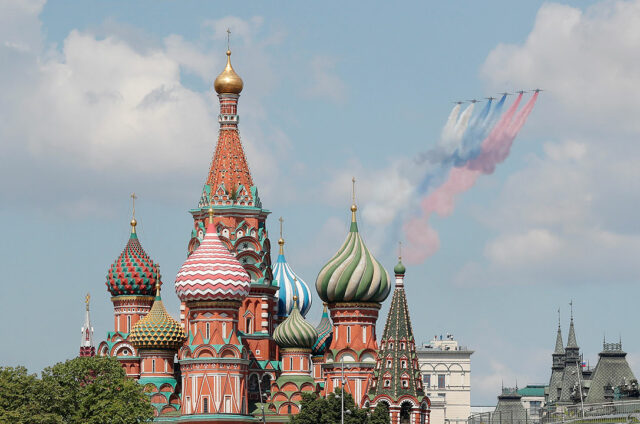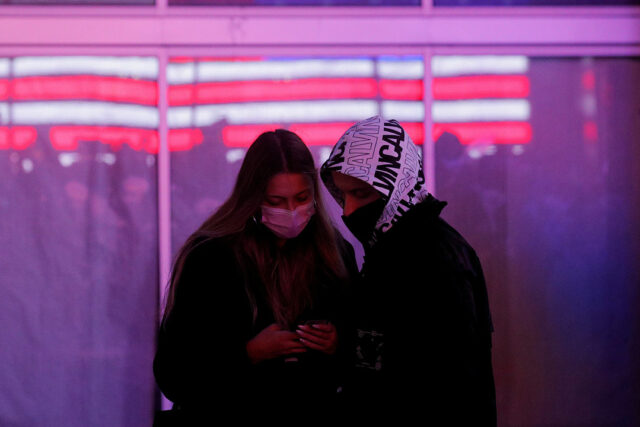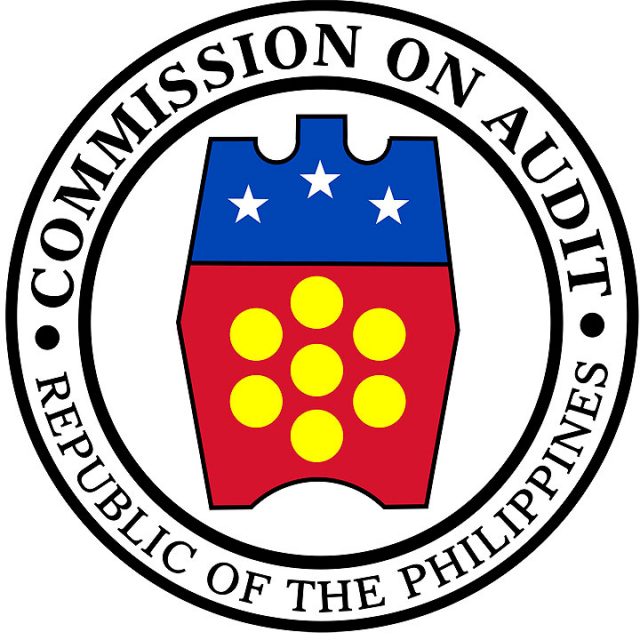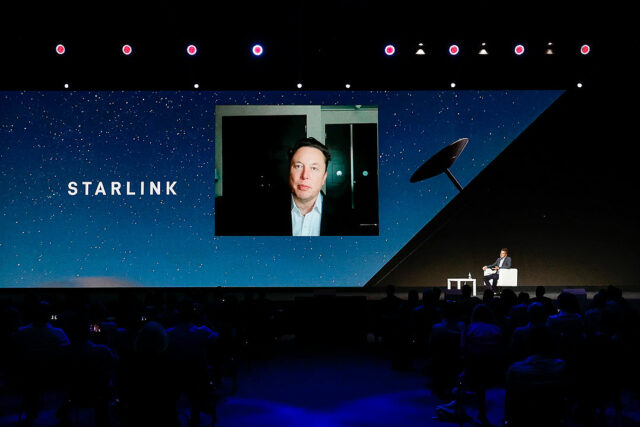BENGALURU/BEIJING/BRASILIA – Space is about to get more crowded for Elon Musk.
The billionaire’s Starlink communications network is facing increasingly stiff challenges to its dominance of high-speed satellite internet, including from a Chinese state-backed rival and another service financed by Amazon.com founder Jeff Bezos.
Shanghai-based SpaceSail in November signed an agreement to enter Brazil and announced it was in talks with over 30 countries. Two months later, it began work in Kazakhstan, according to the Kazakh embassy in Beijing.
Separately, Brasília is in talks with Bezos’s Project Kuiper internet service and Canada’s Telesat, according to a Brazilian official involved in the negotiations, who spoke on condition of anonymity to freely discuss ongoing talks. News of those discussions is being reported for the first time.
Starlink has since 2020 launched more satellites into low-Earth orbit (LEO) – an altitude of less than 2,000 km – than all its competitors combined. Satellites operating at such low altitudes transmit data extremely efficiently, providing high-speed internet for remote communities, seafaring vessels and militaries at war.
Mr. Musk’s primacy in space is seen as a threat by Beijing, which is both investing heavily in rivals and funding military research into tools that track satellite constellations, according to Chinese corporate filings and academic papers whose details have not been previously reported.
China launched a record 263 LEO satellites last year, according to data from astrophysicist Jonathan McDowell analyzed by tech consultancy Analysys Mason.
The emergence of competition to Starlink has been welcomed by Brazil’s government, which wants high-speed internet for communities in far-flung areas but has previously faced off with Musk over commerce and politics.
SpaceSail declined to comment when presented with Reuters’ questions about its expansion plans. A newspaper controlled by China’s telecoms regulator last year praised it as “capable of transcending national boundaries, penetrating sovereignty and unconditionally covering the whole world … a strategic capability that our country must master.”
Kuiper, Telesat, Starlink and Brazil’s communications ministry did not respond to requests for comment.
Few of Mr. Musk’s international rivals have the same ambition as SpaceSail, which is controlled by the Shanghai municipal government. It has announced plans to deploy 648 LEO satellites this year and as many as 15,000 by 2030; Starlink currently has about 7,000 satellites, according to McDowell, and has set itself a target of operating 42,000 by the end of the decade.
SpaceSail’s launches will eventually comprise the Qianfan, or “Thousand Sails,” constellation that marks China’s first international push into satellite broadband. Three other Chinese constellations are also in development, with Beijing planning to launch 43,000 LEO satellites in the coming decades and investing in rockets that can carry multiple satellites.
“The endgame is to occupy as many orbital slots as possible,” said Chaitanya Giri, a space technology expert at India’s Observer Research Foundation.
China’s rush to occupy more of lower-Earth orbit has raised concerns among Western policymakers, who worry that it could extend the reach of Beijing’s internet censorship regime. Researchers at the American Foreign Policy Council think-tank said in a February paper that Washington should increase cooperation with Global South nations if it wanted to “seriously contest China’s growing foray into digital dominance.”
The researchers also described Qianfan as a crucial part of the space component of China’s Belt and Road Initiative. The $1 trillion global infrastructure development plan is a signature policy of Chinese leader Xi Jinping, but has been accused by critics of being primarily a tool to expand Beijing’s geopolitical influence.
China’s commerce ministry and telecoms regulator did not respond to requests for comment. China’s foreign ministry said in response to Reuters’ questions that while it was not aware of the specifics surrounding SpaceSail and Chinese LEO satellites expanding overseas, Beijing pursues space cooperation with other countries for the benefit of their peoples.
SpaceSail has said it aims to supply reliable internet to more users, particularly those in remote areas and during recovery from emergencies and natural disasters.
WILD WEST
Starlink’s rapid expansion and its use in the war in Ukraine has caught the attention of military researchers like those at China’s National University of Defense Technology, prompting significant state funding for rival satellite networks.
Hongqing Technology, which was founded in 2017 and is developing a 10,000-satellite constellation, this month raised 340 million yuan from mostly state-affiliated investors.
Last year, SpaceSail secured 6.7 billion yuan ($930 million) in a financing round led by a state-owned investment fund focused on upgrading China’s manufacturing capabilities.
Chinese researchers, including many affiliated with the People’s Liberation Army, have also turned their attention to the field. China published a record 2,449 patents related to LEO satellite technology in 2023, up from 162 in 2019, according to Anaqua’s AcclaimIP database.
Many focus on cost-efficient satellite networks and low-latency communication systems, according to a Reuters review, underscoring China’s push to close the technology gap.
“The space world is moving fast and busy experimenting,” said Antoine Grenier, global head of space at the Analysys Mason consultancy. “Pioneers are enjoying this relative freedom and are shaping it to their advantage to claim key positions before rules become more stringent – like the wild west.”
Some of the Chinese research appears to be targeted at Starlink, with one PLA-linked patent application describing the U.S. system as critical to reconnaissance and military communications while posing “threats to network, data, and military security.”
Beijing is also developing tools to track and monitor Starlink’s constellation. Researchers from two PLA-affiliated institutes said in a January study published in a Chinese engineering journal that they had designed a system and algorithm for tracking megaconstellations like Starlink’s, which was inspired by how humpback whales trap their prey by circling them and creating spiraling bubbles.
“With the growing trend of space militarization, developing tools to monitor and track these megaconstellations is critically important,” the researchers wrote. – Reuters




